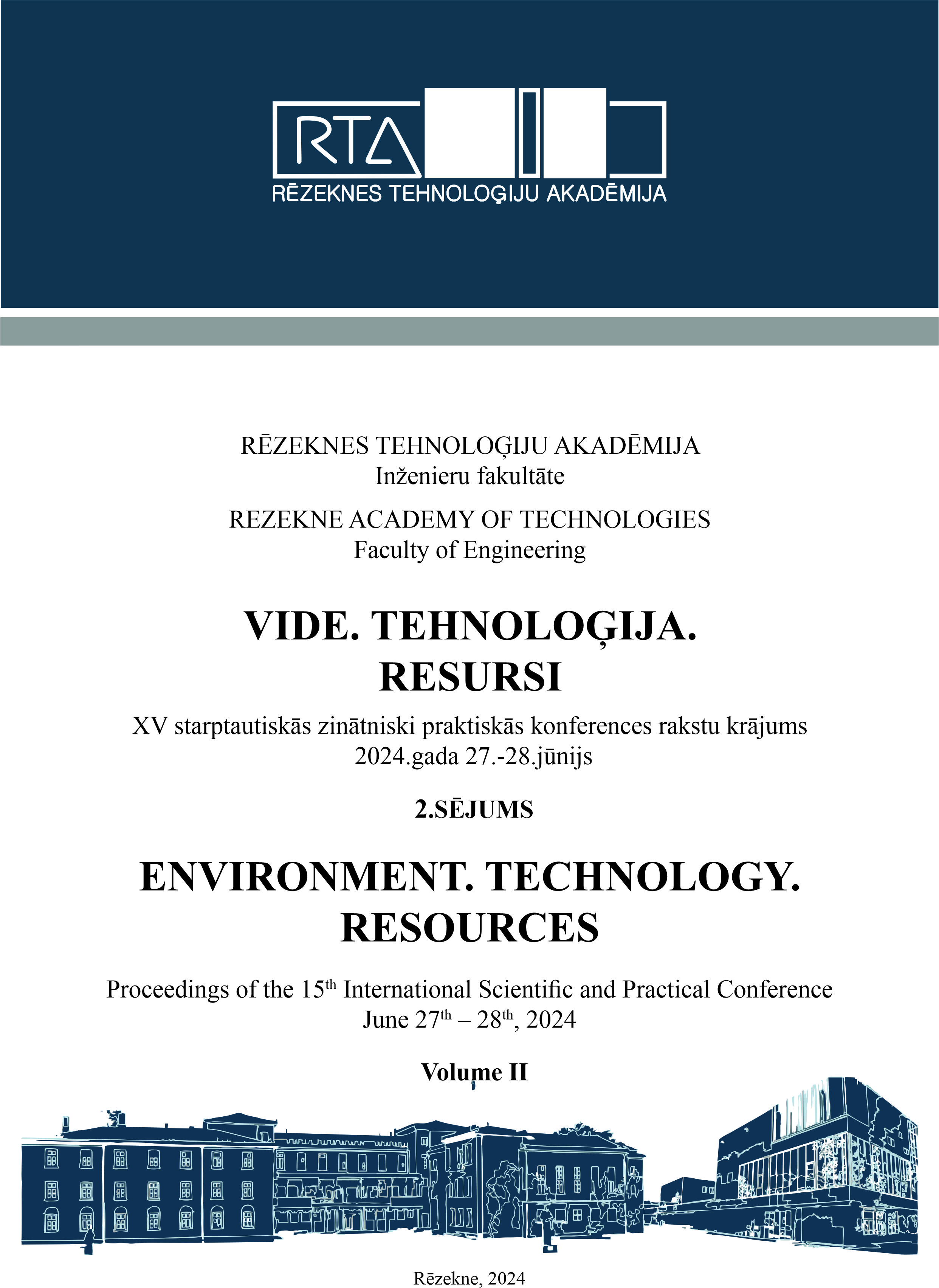ETHICAL CONCERNS IN USING OF GENERATIVE TOOLS IN HIGHER EDUCATION: CROSS - COUNTRY STUDY
DOI:
https://doi.org/10.17770/etr2024vol2.8097Keywords:
artificial intelligence, Chat GPT, education, ethicsAbstract
Even though the historical development of artificial intelligence started in the mid-20th century, since the launching of Chat GPT this concept emerged in the scientific and educational agenda. Different concerns are arising at different education levels, starting from a discussion about whether should it be considered plagiarism, and ending with ethical aspects of the usage of Chat GPT by students and educators.
The research aims to research the main recent scientific findings about generative tools in artificial intelligence and the ethical aspects of its usage in education.
Methods used – analysis of recent scientific findings and statistical analysis of the answers of the respondents on authors created a survey for students of Higher Education Institutions about their attitudes and knowledge towards Generative Tools of Artificial Intelligence. Analysis was performed via SPSS comparing the opinion of students towards ethics of Generative Tools of AI from different countries.
Results of the research show the attitudes of students towards the usage of Generative Tools of Artificial Intelligence from different countries.
References
A.Bahrini, M.Khamoshifar, H.Abbasimehr, R.J.Riggs, M.Esmaeili, R.M.Majdabadkohne, M. Pasehvar, ChatGPT: Applications, opportunities, and threats. In Proceedings of the 2023 Systems and Information Engineering Design Symposium (SIEDS), Charlottesville, VA, USA, 27–28 April 2023. (Google Scholar, CrossRef)
C.K.Y. Chan A comprehensive AI policy education framework for university teaching and learning Int. J. Educ. Technol. High. Educ., 20 (1) (2023), 10.1186/s41239-023-00408-3 38–25
C.K.Y. Chan, K.K.W. Lee The AI generation gap: are gen Z students more interested in adopting generative AI such as ChatGPT in teaching and learning than their gen X and millennial generation teachers? arXiv.org (2023)
Github(2024). Copilot. Available online: https://copilot.github.com/ (accessed on 28 July 2023).
Google Bard (2024). Gemini. Available online: https://bard.google.com/ (accessed on 28 July 2023).
J. Crawford, M. Cowling, K. Allen Leadership is needed for ethical ChatGPT: character, assessment, and learning using artificial intelligence (AI) J. Univ. Teach. Learn. Pract., 20 (3) (2023), 10.53761/1.20.3.02
J.E. Casal, M. Kessler Can linguists distinguish between ChatGPT/AI and human writing?: a study of research ethics and academic publishing Res. Methods Appl. Linguist., 2 (3) (2023), 10.1016/j.rmal.2023.100068
C.Kooli, Chatbots in education and research: A critical examination of ethical implications and solutions. Sustainability 2023, 15, 5614. [Google Scholar] [CrossRef]
L. Sleator Almost half of Cambridge students admit they have used ChatGPT April 21 The Times (2023) https://www.thetimes.co.uk/article/cambridge-university-students-chatgpt-ai-degree-2023-rnsv7mw7z
M. Warschauer, W. Tseng, S. Yim, T. Webster, S. Jacob, Q. Du, T. Tate The affordances and contradictions of AI-generated text for second language writers SSRN Electron. J. (2023), 10.2139/ssrn.4404380
M.T. Nietzel More than half of college students believe using ChatGPT to complete assignments is cheating March 20 Forbes (2023) https://www.forbes.com/sites/michaeltnietzel/2023/03/20/more-than-half-of-college-students-believe-using-chatgpt-to-complete-assignments-is-cheating/
OpenAI (2024). ChatGPT. Available online: https://chat.openai.com (accessed on 28 July 2023).
M.M.Rahman, Y. Watanobe, ChatGPT for education and research: Opportunities, threats, and strategies. Appl. Sci. 2023, 13, 5783. [Google Scholar] [CrossRef]
M.Sullivan, A. Kelly, P. McLaughlan, ChatGPT in higher education: Considerations for academic integrity and student learning. J. Appl. Learn. Teach. 2023, 6, 31–40. [Google Scholar] [CrossRef]
Holmes, W., Porayska-Pomsta, K., Holstein, K., Sutherland, E., Baker, T., Shum, S. B., Santos, O. C., Rodrigo, M. T., Cukurova, M., Bittencourt, I. I., & Koedinger, K. R. (2022). Ethics of AI in Education: Towards a Community-Wide Framework. In International Journal of Artificial Intelligence in Education (Vol. 32, Issue 3, pp. 504–526).
W.M. Lim, A. Gunasekara, J.L. Pallant, J.I. Pallant, E. Pechenkina Generative AI and the future of education: ragnarök or reformation? A paradoxical perspective from management educators Int. J. Manag. Educ., 21 (2) (2023), Article 100790, 10.1016/j.ijme.2023.100790
Downloads
Published
Issue
Section
License
Copyright (c) 2024 Jūlija Mironova, Viktoriia Riashchenko, Remigijus Kinderis, Valentina Djakona, Sevdalina Dimitrova

This work is licensed under a Creative Commons Attribution 4.0 International License.



